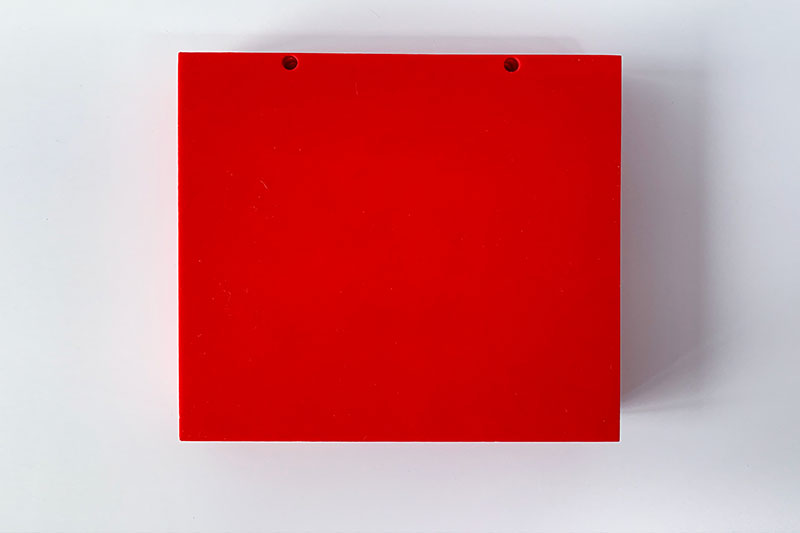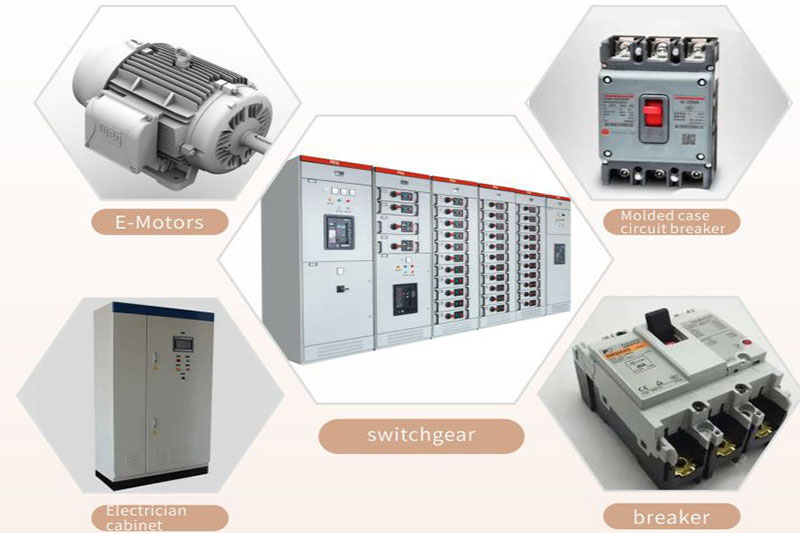When selecting electrical insulation materials, GPO-3 sheets stand out due to their unique performance characteristics, making them a key material in the manufacturing of various electrical devices. However, like any material, GPO-3 has its pros and cons. A deep understanding of its strengths and weaknesses can help us make more informed decisions in practical applications. Let’s take a detailed look at the specific features of GPO-3 sheets.
GPO-3 sheets perform exceptionally well in terms of electrical insulation. Even in high-humidity environments, they maintain stable dielectric properties and boast a high dielectric breakdown voltage. This makes GPO-3 an effective material for isolating electrical currents, preventing leakage at the source, and ensuring the safe and stable operation of electrical equipment. Additionally, GPO-3 exhibits excellent arc resistance and tracking resistance, enabling it to perform reliably even under harsh high-voltage or high-frequency conditions. For these reasons, GPO-3 sheets are particularly suitable for applications such as circuit breakers and switchgear, where superior electrical insulation is essential.
Under moderate temperature conditions, GPO-3 sheets demonstrate strong mechanical properties, including high strength and rigidity. These qualities allow them to provide reliable structural support without easily deforming, thereby enhancing the stability and reliability of equipment. GPO-3 also excels in processability. It can be easily stamped, drilled, or machined into components of various shapes to meet diverse equipment design requirements.
GPO-3 sheets possess outstanding flame-retardant properties, and some variants—such as Grade UTR—are halogen-free. This means that in the event of a fire, GPO-3 produces less smoke and fewer toxic fumes, significantly reducing fire hazards and offering strong protection for both personnel safety and the reliable operation of equipment.
GPO-3 sheets are highly adaptable to environmental conditions. They can operate reliably under high temperatures without degradation of insulation performance, thus preventing potential issues like electrical leakage. This makes them suitable for high-temperature working environments. Additionally, GPO-3 sheets are easy to store—long-term storage at room temperature is feasible—and they come with relatively low packaging and transportation costs.

Compared with some conventional insulation materials, GPO-3 sheets are generally more expensive. As a result, incorporating GPO-3 into a product can increase overall manufacturing costs, which may be a significant concern for budget-constrained projects.
Although GPO-3 is relatively easy to process, more complex manufacturing procedures may require specialized equipment and skilled technicians. This can lead to higher processing complexity and increased labor or equipment costs.
At present, some users lack a deep understanding of GPO-3’s performance advantages. As a result, when selecting insulation materials, they may prefer more familiar alternatives, which poses a challenge to the broader market adoption and promotion of GPO-3 sheets.
In frame-type circuit breakers, GPO-3 laminated sheets are commonly used to manufacture key components such as safety barriers, protective covers, spacer pads, and phase separators. In molded case circuit breakers, GPO-3 sheets are mainly applied to components like phase separators and arc chamber barriers. These applications play a vital role in ensuring the safe and reliable operation of circuit breakers.
In the motor industry, GPO-3 laminated sheets can be used to produce a variety of motor components, including armature parts, movable covers, stator slot wedges, positioning shims, thin gaskets, and brush holders. These components contribute to the stable and efficient operation of electric motors.
In switchgear systems, GPO-3 laminated sheets are primarily used in the barrier system, including the front, rear, top, bottom, and phase partition components. Here, they provide excellent insulation and structural support. Additionally, GPO-3 sheets are widely applied in arc-resistant structural components and other demanding electrical environments.

Authentic GPO-3 sheets are certified by Underwriters Laboratories (UL), a recognized safety testing organization in the United States. Each genuine sheet carries an individual UL Recognition File Number. When purchasing, always ask the manufacturer for this UL file number to verify the authenticity of the product.
Genuine GPO-3 sheets have a CTI (Comparative Tracking Index) rating of up to 600V. Using professional testing equipment and methods to measure the CTI is one of the key ways to determine whether the sheet is genuine.
According to international standards, the density of genuine GPO-3 sheets ranges from 1.81 to 1.83 and contains no fillers. This characteristic ensures the sheet’s reliability and stability. Therefore, accurately measuring the material’s density is another effective method for verifying authenticity.
If you need our products please write down any questions, we will reply as soon as possible.
There are three ISO certificates for quality certification. The certificates will be shown later. ISO
After receiving the advance payment, the production cycle is 15-25 days. And the transportation cycle should be calcul……
We supply with installation guide and user manual for each transformer. If you do not understand them. We will offer v……